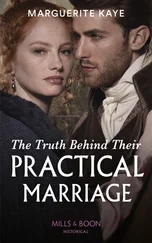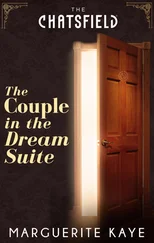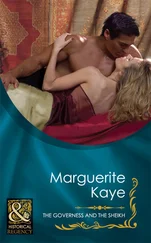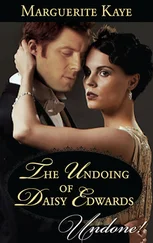Left alone with the artist, Cressida surveyed him properly for the first time. She had been so absorbed in trying to maintain control of her temper that until now she had noted merely that Signor di Matteo’s dress was not at all like the peacock she expected, that he was younger than she had surmised from his reputation, and that his English was excellent. What struck her now with some force was that he was starkly and strikingly beautiful. Not merely handsome, but possessing such an ethereal magnetism and sense of physical perfection that she could almost question whether or not he was real.
Aware that she was staring, she took a mental inventory in an attempt to unscramble her reeling senses. High cheekbones and a high brow, the sleek line of his head outlined by the close-cropped cap of raven-black hair. His eyes were dark brown under heavy dark lids. It was a classically proportioned face, albeit vaguely saturnine. The planes of his cheeks were sharp, accentuated by the hollows below. He had a good nose. A near enough perfect nose, in fact. And his mouth—it was wasted on a man, that mouth. Full lips, top and bottom, deeply sensual, sculpted, and at the same time it curved up just enough to make him look as if he was on the verge of a smile, just enough to take the edge off his forbidding expression. Even without measuring the precise angles, Cressie could tell she was looking at the physical embodiment of perfect mathematical beauty. A face which would launch a thousand ships—or flutter a thousand female hearts more likely, she thought cynically. But it was also the epitome of her theory. And at that thought, her heart gave a little unaccustomed flutter.
She was being rude, though, judging from the way Signor di Matteo was returning her gaze. Haughty and at the same time wearily resigned, he was clearly accustomed to being stared at. No wonder, and even less of a surprise was his indifference to her, for he had painted some famous beauties. Unlike her father, Cressie had studied several examples of Signor di Matteo’s work in the course of her research for her treatise. Like the man himself, his paintings were perfectly proportioned and classically beautiful. Too perfect, almost. His subjects were portrayed flawlessly and flatteringly. There was, in the small number of portraits she had managed to view, a similarity in the way their faces conformed to an ideal, the result of which was undoubtedly a very accomplished likeness, but also moulded the individual features from a kind of template of beauty. Which was exactly the premise of the theory that Cressie had developed. Beauty could be reduced to a series of mathematical rules. It would be fascinating to see first-hand how Signor di Matteo, the famous artist, set about creating his works.
A famous artist who, Cressie now noted with deep embarrassment, was tapping his fingers impatiently on her father’s desk. She flushed. How rude he must think her. ‘I trust you have in mind a suitably flattering composition, signor. As you will no doubt have noticed, my father dotes on his sons.’
‘His charming boys.’
Was there just the lightest hint of irony in his voice? Could this artist actually be mocking his patron? ‘They are very good-looking,’ Cressie conceded, ‘but they are most certainly not charming. In fact, you should know that they have a particular liking for practical jokes. Their governess has recently left without notice as a result of one such, which is why I shall be taking her place, their reputation being—’
‘You!’
Cressie stiffened. ‘As I have already informed my father, I am perfectly capable of teaching the rudiments of mathematics.’
‘That is not what I meant. It is merely that the Season is almost upon us. I would have thought you would have had parties to attend—but forgive me, it is none of my business.’
‘I have already experienced several Seasons, signor , and have no wish to endure another. I am six-and-twenty, and quite beyond dances and parties. Not that I ever—but that is of no account.’
‘You have no wish to find a husband, then?’
The question was extremely impertinent, but the tone of his voice was not, and Cressie was, in any case, eager to vent her spleen now that the real object of her wrath had departed. ‘There are some women whom marriage does not suit. I have concluded I am one of them.’ Which was not quite a lie, but more like putting the truth through a prism. ‘Until I am at least thirty and saying my prayers, however, my father will not accept that. His gracious permission to excuse me this year is more to do with ensuring I do not intrude on my youngest sister’s chances of making an excellent match. Once she is safely betrothed, I am to be wheeled back on to the market. My role as governess is merely a temporary expedient.’
Her frankness had obviously perplexed him. It had taken her aback too. A small frown marred that perfect brow of his, and confusingly there was also a hint of upward tilt of that far too perfect mouth. Was he laughing at her? Cressie bristled. ‘It was not my intention to provide you with a source of amusement, signor .’
‘I am not amused, merely—interested. I have not before met a lady so determined to boast of her unmarried state and the fact that she understands more than the—er—the rudiments of mathematics.’
He was mocking her. ‘Well, now you have.’ Indignation and anger made Cressie indiscreet. ‘And I do understand considerably more than the rudiments, if you must know. In fact, I have published a number of articles on the subject, and even reviewed Mr Lardner’s book, Analytical Treatise on Plane and Spherical Trigonometry . I have also written a children’s geometry primer which a most respected publisher has shown an interest in printing, and I am currently writing a thesis on the mathematics of art.’
So there! Cressie folded her arms over her chest. She had not meant to blurt out quite so much. Having done so, she waited for Signor di Matteo to laugh, but instead he raised his brows and smiled, not a condescending smile, but rather as if he was surprised. His smile made her catch her breath, for it transformed his beauty from that of a haughty statue to something much more human.
‘So you are a published author.’
‘Under the pseudonym Penthiselea.’ Cressie had just betrayed yet another jealously guarded secret without meaning to. What was it about this man? He had her spilling her innermost thoughts like some babbling child.
‘Penthiselea. An Amazonian warrior famed for her wisdom. It is most—apt.’
‘Yes, yes, but I must urge you to discretion.
If my father knew …’ Cressie took yet another deep breath. ‘ Signor , you must understand that in my position—that is to say— my father thinks that my facility for mathematics is detrimental to his ambition to marry me off, and I must confess that it is my own experience too, by and large. Men do not value intelligence in their wives.’
Signor di Matteo’s smile had a cynical twist to it now, his dark eyes seemed distant, turned in on some unpleasant memory. ‘Blood and beauty rule supreme, signorina ,’ he said. ‘It is the way of the world.’
It was a stark little expression, which said more precisely than she ever could exactly what Cressie herself believed. Beauty was this man’s business, but she wondered what he knew of the burden of pedigree. She could not find a way of framing such a personal question without inviting offence.
He put an end to her attempts, with a question of his own. ‘If you are studying the relationship of mathematics to art, you must have read the definitive work by my fellow Italian. I refer to Pacioli, his De Divina Proportione ?’
Читать дальше












